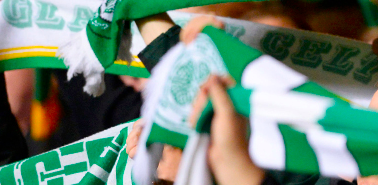Celtic plc said its revenue increased 3.9% to £124.6 million in the year to June 30, 2024, but its profit before taxation fell to £17.8 million from £40.7 million in the prior year.
Operating expenses including labour increased by 10.4% to £105.4 million. Gains on the sale of player registrations fell to £6.6 million from £14.4 million while the acquisition of player registrations totalled £16.6 million, up from £13 million.
Year-end cash rose to £77.2 million (2023: £72.3m).
Celtic plc chairman Peter Lawwell said: “The £4.7m increase in revenue reflects several factors including higher participation fees in the UEFA Champions League in season 2023/24, when compared to the previous season, alongside stronger retail performance in the year.
“The £22.9m decrease in profit before tax, although significant, was in line with expectations due to a number of known and anticipated factors. In relation to football activities, our gain on sale achieved in the year was £7.8m lower than in the prior year.
“We also invested higher sums into the men’s team compared to the prior year in the form of salaries. In addition, we have experienced a rise in overhead costs driven by the high inflationary environment in which the business has operated over the last year.
“There was also the absence of £13.5m of non-recurring other income which was specific to the prior year.
“Our year end cash was £77.2m (2023: £72.3m). Despite Champions League qualification, the increase in cash was more modest than it may have been owing to the investment into the team in terms of transfer expenditure and wage costs in the year under review.
“This was coupled with the commencement of significant capital expenditure projects, including the Barrowfield re-development and a number of stadium maintenance projects.
“Further to the investment in player registrations of £13.0m in the previous financial year ended 30 June 2023, the club made significant investment by committing an additional £16.6m in the year under review.
“This took our total spend to £68.0m over the three financial years to 30 June 2024.
“Since the year end, and up to the closure of the transfer window on 30 August 2024, we have invested a further £31.2m into player registrations (including transaction costs). Over the summer transfer window, we twice broke the club’s previous record transfer.
“As a result of this period of sustained investment, our current squad carries the highest value and resulting amortisation charge in the club’s history, by a considerable margin.”
Lawwell said that in the summer 2024 transfer window, Celtic acquired the permanent registrations of Kasper Schmeichel, Viljami Sinisalo, Paulo Bernardo, Adam Idah, Arne Engels, Auston Trusty and Luke McCowan and the temporary registration of Alex Valle.
He said Celtic permanently transferred out the registrations of Hyeon-gyu Oh, Sead Haksabanovic, Matt O’Riley, Michael Johnston, Yuki Kobayashi, Ben Siegrist and Tomoki Iwata. We also temporarily transferred out the registrations of Gustaf Lagerbielke and Hyeokkyu Kwon.
“Winning the Scottish Premiership in 2023/24 resulted in automatic qualification into the new UEFA Champions League format for season 2024/25,” said Lawwell.
“This new structure brings more variety, the opportunity for more teams to participate at the highest level and a fresh dynamic for fans to enjoy …
“Notwithstanding the domestic success we have enjoyed and the establishment of Celtic as a regular European football participant, it is important that we do not deviate from our strategy, which has been successful over many years, based on maintaining a self-sustaining financial model.
“This involves targeting Champions League qualification each year along with introducing young players into our team, either from our academy or through recruitment, with a view to developing them and helping them to progress their careers.
“This is not without its challenges as domestic media rights have been unable to keep pace with the media rights environment of our competitor markets and football industry inflation in general over recent years. This means that securing the best players is more challenging and we must work harder than ever to bring success.
“Our strategy has been crucial to the domestic success of recent years, and it is one your Board intends to maintain. In line with all other clubs who compete in European competition, we must also be cognisant of the UEFA Financial Sustainability rules and look to balance the short term and long-term objectives of our Club. This is a difficult balance, but a vital one …”
